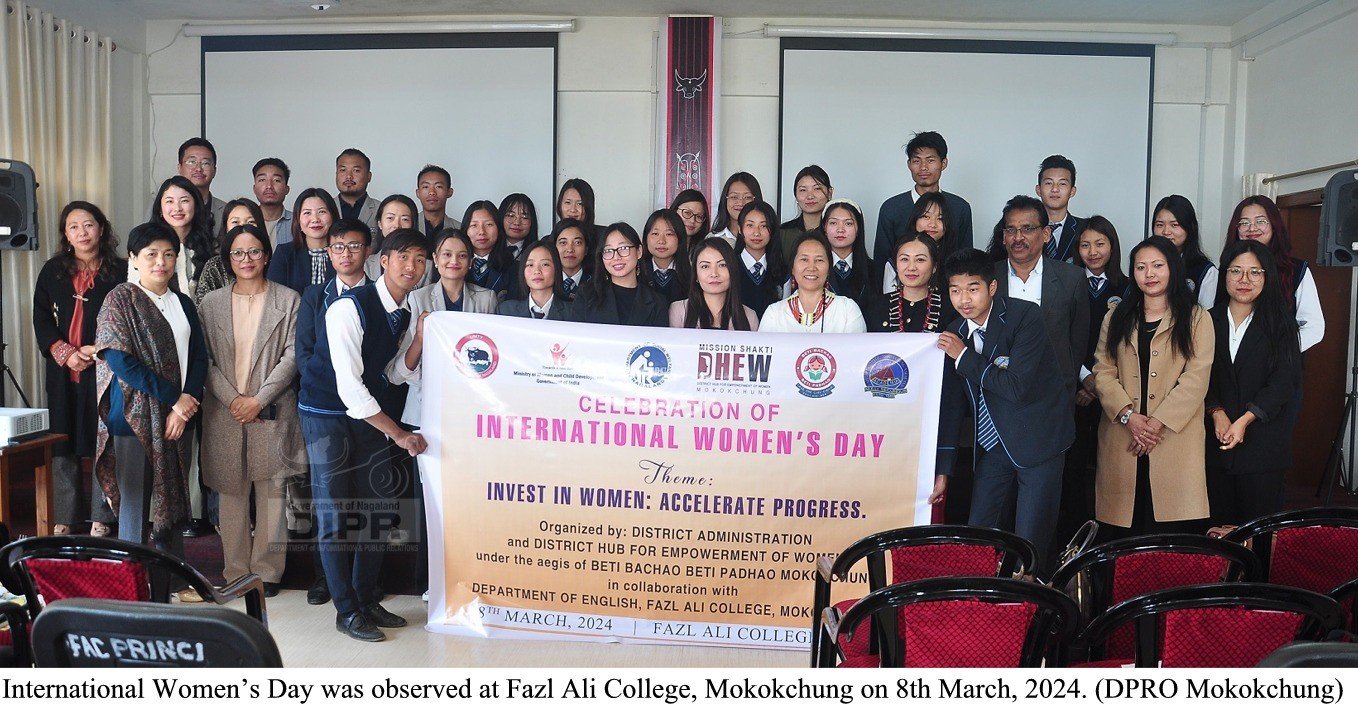The District Administration, Mokokchung and District Hub for Empowerment of Women under the aegis of Beti Bachao Beti Padhao, Mokokchung in collaboration with the Department of English, Fazl Ali College, Mokokchung celebrated International Women’s Day under the theme “Invest in Women: Accelerate Progress” at Conference Hall, Fazl Ali College, Mokokchung on March 8.
According to DIPR, the key address was delivered by Dr Imlirenla Walling, ex-President, Watsu Mungdang on the topic “Property Rights of women in the Ao Naga context”. Dr. Walling presented a semi-structured paper on the topic highlighting on two important aspects: Inherited or Ancestral property and Acquired or Achieved property. She also stressed on the role of women in the Naga patriarchal society as women are still struggling to find their place in decision making bodies and inheritance of parental properties. Asserting that property rights among the Ao’s are heavily biased in favour of men, she stated that patrilineal inheritance threatens the society and well-being of women especially those who are financially dependent on their spouses and parents.
Download Nagaland Tribune app on Google Play

A panel discussion on the topic “Carving a Space of Her Own: A Discussion on Naga Women Writers” was held with Dr Moalemla Imchen as the Moderator. The panelists included student representatives from Clark Theological College, Mokokchung College of Teacher Education, People’s College, Mokokchung besides the host college.
SDO (C) Mokokchung, Abeinuo Jasmine Ashao delivered the concluding remarks on the occasion. She stated that the main purpose for having the panel discussion on the occasion of International Women’s Day was to introduce the idea of having an insightful discourse on the position of women in the society today. To accelerate the progress of women, she said that it is important to send an elected women representative to the Nagaland Legislative Assembly from Mokokchung district since the Ao’s are considered to be the pioneers in education, progress and development. She also asserted that the economically independent women is the first step towards empowerment of women and urged them to avail benefit of women centric welfare schemes aimed at making them self-reliant and to become catalyst of change for the future generation.
The programme was attended by the faculty members, student representatives from different colleges and a host of well-wishers.

